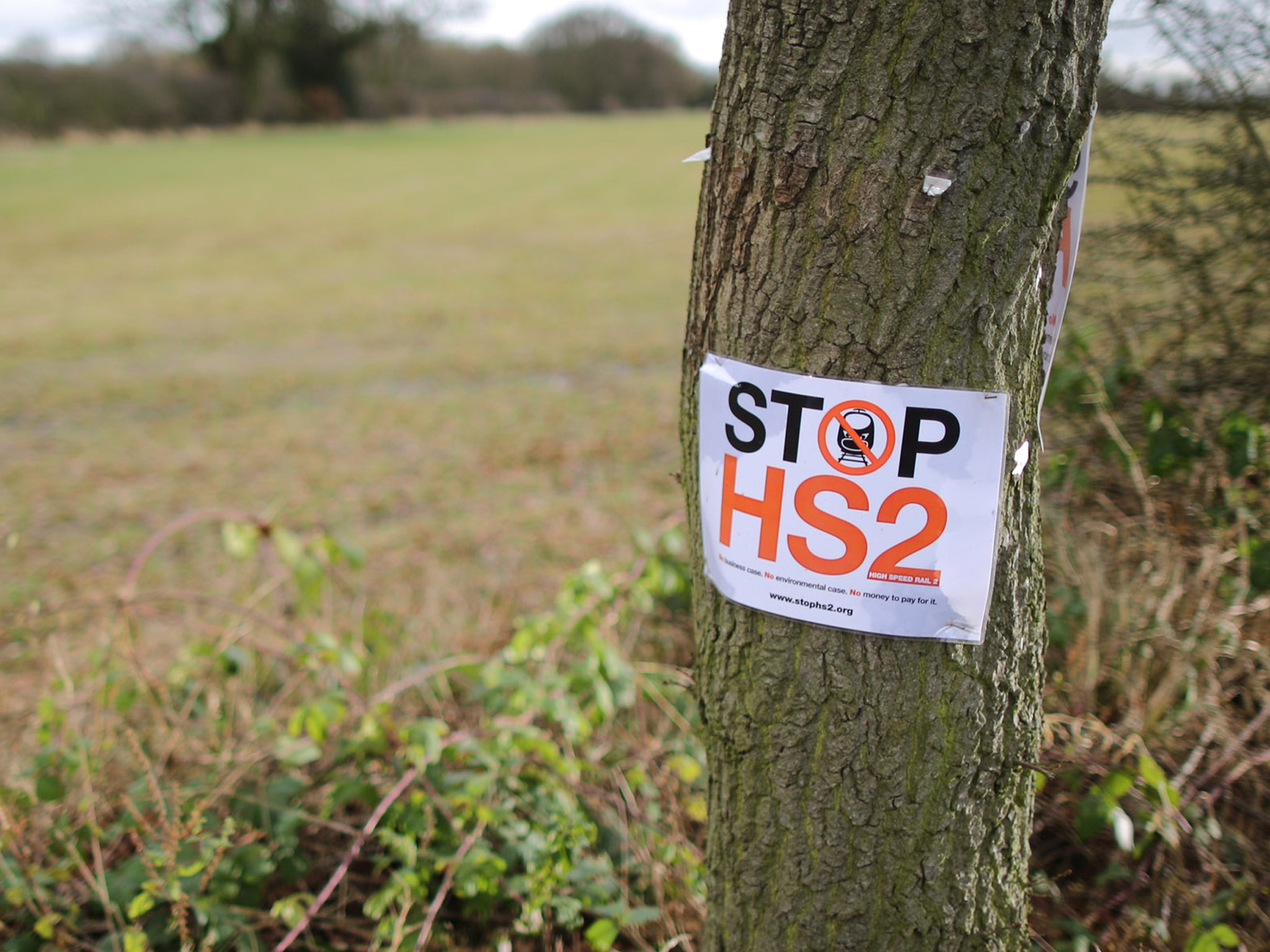HS2 'could generate £15bn for economy': Report starts Government fight-back on case for high-speed rail link
KPMG report concludes the £42bn line would have a significant impact on growth across the Midlands, North-west and North-east of England

A high-speed rail link between London and Manchester could generate economic growth worth £15bn a year by freeing capacity on other railway lines and speeding up business connections between cities, an analysis for the Government suggests today.
In an attempt to address concerns raised by the National Audit Office that the economic case for HS2 had not been sufficiently addressed, ministers published a report commissioned from accountants KPMG that used new economic modelling to assess the potential impact of the railway.
It concluded that the £42bn line would have a significant impact on growth across the Midlands, North-west and North-east of England – increasing GDP and providing an extra £5bn in tax revenue by 2037.
It represents the start of a political fight-back by the Government and the backers of HS2 after weeks of criticism from businesses, former Labour ministers, and those who will be affected by the building of the new line.
In a speech today, the Transport Secretary, Patrick McLoughlin, will argue that Britain needs HS2 “as a heart bypass for the clogged arteries of the transport system”.
Mr McLoughlin will argue that only a new railway line can give the capacity benefits the country needs to develop and will say that upgrading the West Coast Main Line would be like “trying to run the M1 up the Old Kent Road”.
“The main reason we need HS2 is it will lift the long-distance burden from our overcrowded main lines so they can concentrate on what they are best at – more local trains, more freight trains and more services for towns and cities up and down Britain.”
He will pledge to deliver HS2 within its current £42.6bn budget and dismissed suggestions it could rise further as “scare stories from opponents”.
The speech has been coordinated with a letter from the heads of Britain’s Chambers of Commerce to David Cameron, in which they attempt to offset recent criticisms of HS2 by the Institute of Directors.
They argue Britain’s future business success depends on infrastructure networks which meet demand and that the UK must have a significantly upgraded rail network.
“HS2 will help Britain’s economic performance move from good to great,” they say. “It is the best sort of radical infrastructure investment – delivering major supply-chain benefits to UK companies of all sizes during the construction phase, and unlocking significant follow-on business investment in our towns and cities.”
Lewis Atter, KPMG’s lead on infrastructure strategy who helped write the report, said they had based their analysis on formulations already used in local government.
“Adding £15bn a year to the UK economy is like creating an economy the size of Cambridgeshire or Oxfordshire, without reducing the size of anywhere else.”
However, the KPMG report did not convince the Institute of Directors. Graeme Leach, its chief economist, said: “This report tells us nothing about whether HS2 is the best way to spend £50bn on the rail network as its method for calculating benefits has not been applied to other potential rail projects. You can’t shift the goalposts for one scheme without making a fair comparison with alternatives. In our view, HS2 remains poor value for money.”
Join our commenting forum
Join thought-provoking conversations, follow other Independent readers and see their replies
Comments
Bookmark popover
Removed from bookmarks